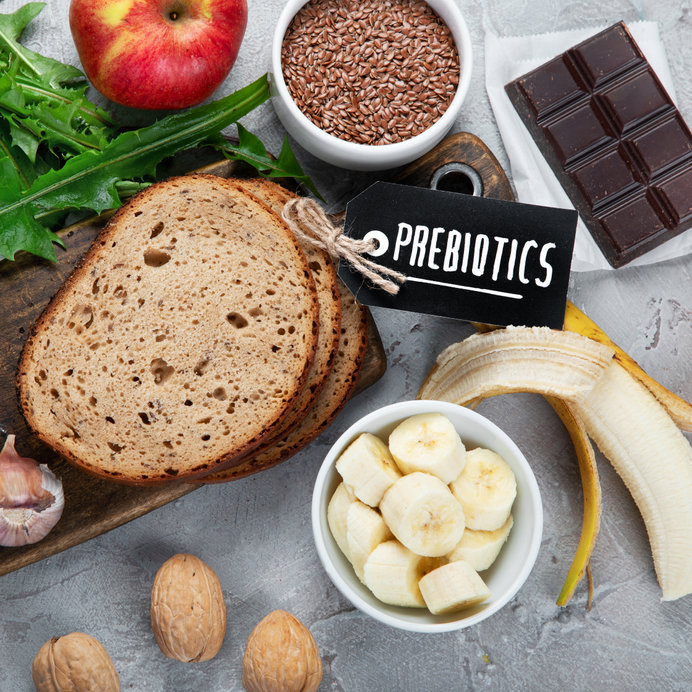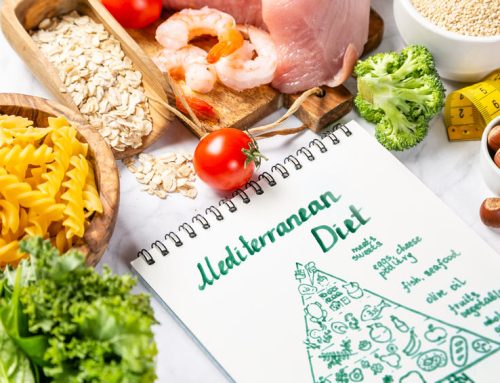What are prebiotics and are they different from probiotics? Prebiotics are fibers that aren’t digestible by your body but can help good bacteria grow in your gut. Since your body doesn’t digest these plant fibers, they travel to your lower digestive tract to be a food source for the healthy bacteria in your gut. Prebiotics are not the same as probiotics, which are helpful bacteria, although both are important to your digestive system.
Why You Need Prebiotics
Prebiotics are important to your health, although more research is needed to understand all the ways it can help your body. Prebiotics occur naturally in some high-fiber foods but are sometimes added to foods. They are also available as a dietary supplement.
There isn’t an official recommended guideline on how much to eat each day. Studies suggest that eating 3 to 5 grams of prebiotics a day can benefit the health of your gut. Eating the recommended amount of dietary fiber likely will ensure you’re getting enough.
What are Prebiotics: Health Benefits
• Gut and Digestive Health
Prebiotics can keep your gut and digestive system healthy. They can strengthen your gut health by increasing “good” bacteria that help ward off pathogens in your intestinal tract and help with constipation.
• Immune System
What you eat can influence your immune system and allergy risk. Prebiotics may help reduce inflammation, especially in your intestines, and strengthen the immune system by changing the balance of “good” and “bad” intestinal bacteria, although more research is needed. Having a good balance of gut bacteria can help protect your body from disease.
Prebiotics also may help with allergy prevention and symptoms of eczema by impacting directly and indirectly on the systems involved in allergic disease development, although further study is needed.
• Bone Health
Having strong bones is important to your health, as it can reduce the risk of osteoporosis and bone fractures. Results of some studies suggest prebiotics may help with the absorption of calcium, which is critical to bone health.
Foods With Prebiotics
Prebiotics occur naturally in many foods, such as vegetables, fruits, and whole grains. If you eat a varied diet, you’ll get plenty of prebiotics from the foods you eat without needing supplements.
These eight foods are good sources of prebiotics:
1. Dandelion Greens
Dandelion greens are high in fiber with 3.5 grams per 100-gram serving, including inulin. In addition to prebiotics and fiber, dandelion greens contain antioxidants — which help prevent damage to your cells that can lead to serious diseases such as cancer, cardiovascular disease, and Alzheimer’s disease. You can add dandelion greens to salads, green juices, and smoothies.
2. Garlic
Garlic is an herb that adds flavor and nutrients to your foods. It is a good source of inulin and FOS that supports good gut bacteria and has been used for centuries for overall health. While garlic has the best health benefits when eaten raw, you can still benefit from incorporating it in your cooking.
3. Chicory Root
Chicory root has a coffee-like flavor, and when made as a tea can be a replacement for coffee. It is an excellent source of prebiotics and is high in antioxidants. Chicory root fiber is often added to prepackaged foods to boost the fiber content.
4. Onions
Onions are rich in prebiotics, antioxidants, and flavonoids — which are compounds that help prevent cancer and other chronic diseases. Onions contain inulin and FOS, which can strengthen your gut health and help your immune system. You can add onions to cooked dishes like soups, stews, and main courses or eat them raw in dishes like salads.
5. Jerusalem Artichokes
Jerusalem artichokes are not related to globe artichokes but are a vegetable with an edible tuber that comes from a type of sunflower. They are rich in fiber, especially inulin, as well as antioxidants. Jerusalem artichokes help support your colon health by increasing healthy bacteria and can fight off a variety of diseases. They can be eaten raw or cooked.
6. Bananas
Bananas contain various vitamins, minerals, and fiber, including small amounts of inulin. This fruit can help increase healthy bacteria in your gut and reduce bloating. Bananas can be eaten raw or cooked.
7. Whole Oats
Whole oats are high in fiber and include beta-glucan fiber and resistant starch, which has been linked to beneficial gut bacteria. Oats can be cooked and are frequently found in prepackaged foods. They are also known to help with blood sugar control and digestion.
8. Apples
Apples are high in vitamin C, antioxidants, and fiber. The fiber in apples includes pectin, which increases the healthy bacteria in your gut and decreases harmful bacteria. While the flesh of apples has health benefits, apple peels contain many critical nutrients that can benefit your health, so they are an essential part of the apple to eat.
Click here to get more information on the questions of what are prebiotics.







